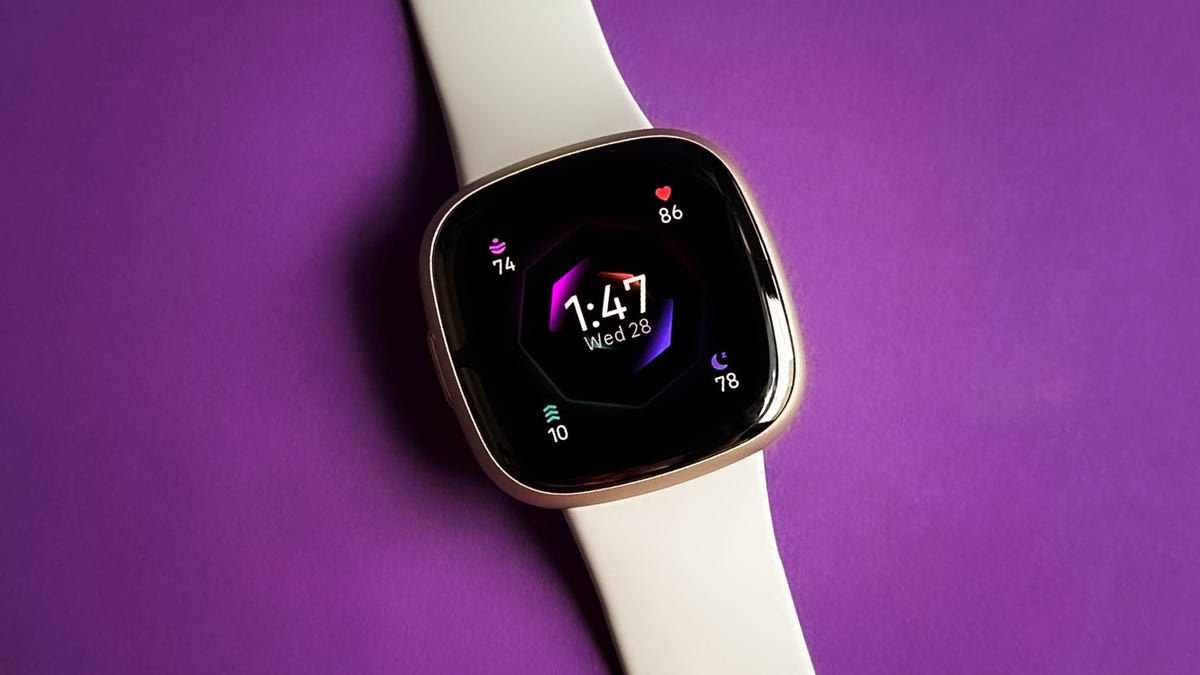Fitbit Will Use AI to Connect the Dots Between Your Health Metrics
Fitbit Labs is a new program that uses AI to extract deeper trends in your health and fitness data.

The Fitbit Sense 2
Fitbit can already tell you how far you've run, how well you're sleeping and how stressed you might be. Now, it wants to help you better understand the nuances of those readings, such as why certain workouts may feel harder than others. And artificial intelligence will be a key part of how the Google-owned fitness app achieves that.
The company on Wednesday teased a new program called Fitbit Labs, which will use AI to generate deeper health insights and takeaways. It'll start rolling out to US Fitbit users in early 2024, and Pixel phone owners will be given priority access. James Park, vice president, general manager and cofounder of Fitbit, mentioned the program during Google's product launch event.
"We've always talked about being able to help people connect different pieces of their health data together and get insights from it, so I think that's the first step," Park said in an interview ahead of Google's event.
Although Park didn't reveal much about the service, Fitbit Labs will initially focus on providing more personalized insights and trends. That would entail using generative AI to connect the dots between different data points. Fitbit Labs may be able to tell you things like why you felt more tired than usual after today's run compared to yesterday's, for example.
To answer that question, Fitbit would compare today's run to previous ones with a similar distance and look for changes in metrics like pace. It would also consider factors like whether you were running uphill and your recent sleeping patterns. Fitbit can even generate a chart comparing pace times to answer your question.
"Before maybe you had an inkling but weren't quite sure," Park said. "But I think with generative AI, the system will be able to give you much better insight into the possibilities into why you're feeling the way you're feeling."
The program is another example of how Google is leaning more heavily into artificial intelligence to make its products stand out. Tech giants like Google, Microsoft and Meta have refocused some of their core products around generative AI, or AI that can create content when prompted based on training data, following ChatGPT's rapid rise in late 2022. Fitbit Labs shows how Google's generative AI ambitions could surface in its smartwatch, underscoring how AI is shaping the tech gadgets and services we rely on everyday.
The news also comes as Apple is rumored to be working on an AI-fueled health coach for the Apple Watch, according to Bloomberg. Apple's rumored service would leverage AI and Apple Watch data to create customized programs, the report says. Apple is also enabling Siri to answer health-related questions on the Apple Watch Series 9 later this year. The Google Assistant will also be able to answer health-related questions.
Health tracking is an area that's ripe for improvement, particularly when it comes to making statistics feel helpful rather than just a deluge of data. Brands like Fitbit, Samsung and Oura have been making progress in that area in recent years by adding features like scores that evaluate how well-rested you are and animal mascots that symbolize your sleeping habits. Fitbit Labs feels like the next step in that direction.
Park's broader vision for Fitbit Labs is to eventually create a personalized "health agent that understands a lot of context about you through the data that we've collected," he said.
"So I think what we're going to see is an era of really personalized fitness, wellness and health coaching that's powered by generative AI," he added.
Editors' note: CNET is using an AI engine to help create some stories. For more, see this post.

